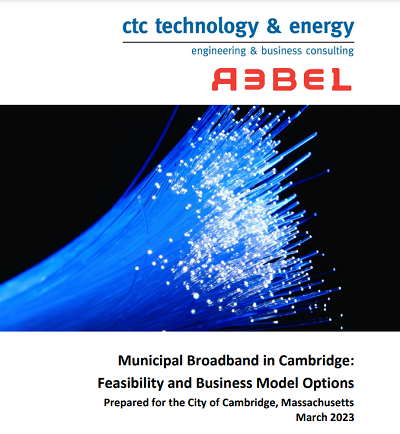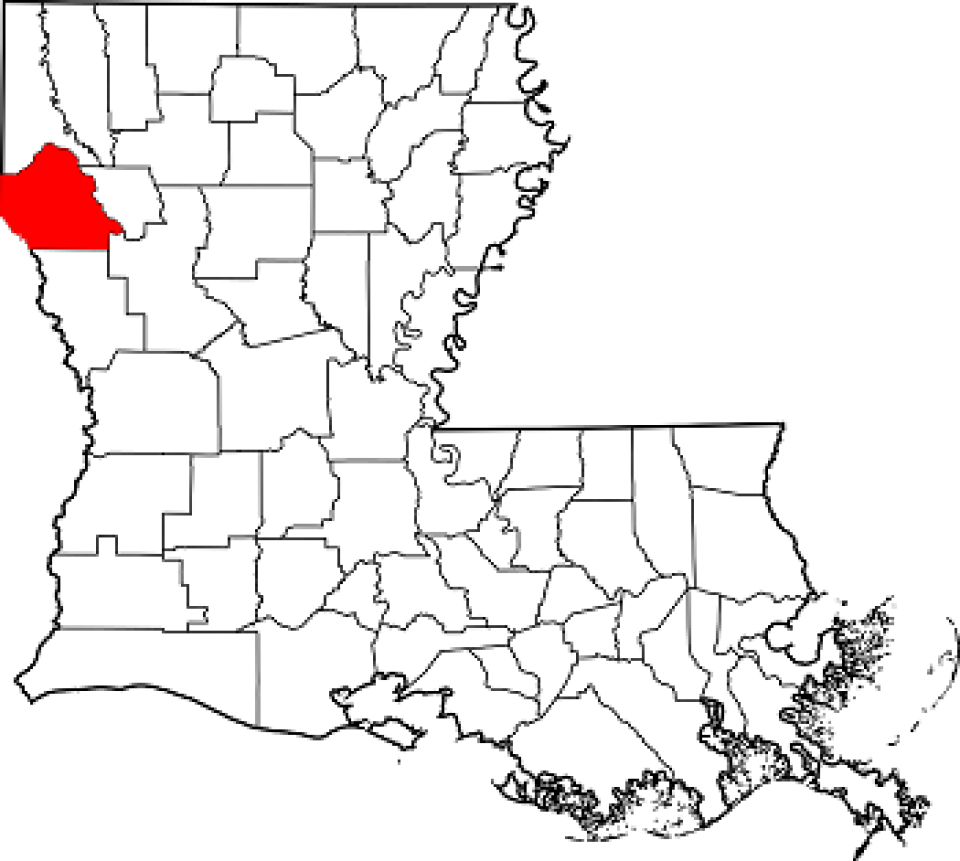
Fast, affordable Internet access for all.

Joplin, Missouri has announced a new broadband public-private partnership (PPP) with ALLO Fiber that should help boost competition and lower rates across the city of 52,000. The partnership poses a particular challenge to regional cable giant CableOne, which currently enjoys a monopoly over broadband access across a whopping 83 percent of the city.
Outside of a $5 million city contribution to harden key city infrastructure, the network will be entirely built, funded, owned and operated by ALLO.
The origins of the project extend back to 2019, when the city first began exploring efforts to modernize Joplin infrastructure under a “smart city” initiative. By 2021 the city had hired Finley Engineering and CCG Consulting to conduct a feasibility study exploring the technical and financial details of a city-owned fiber network.
Fed up by expensive and substandard broadband access and buoyed by public support, in 2022 the city issued a request for proposal (RFP) for a partner that would help build such a network. The city received nine responses to the RFP. Last month, the Joplin City Council approved an ordinance by a vote of 8-1 selecting ALLO as the city’s primary partner.

“ALLO really stood out because they were coming to our market without asking us for any assistance,” Troy Bolander, Joplin’s head of Planning, Development & Neighborhood Services, recently told Fierce Network.

This week on the podcast, Christopher is joined by Will O'Donnell, Broadband and Communications Director at Jefferson County Public Utility District in Washington State, to talk about the Herculean task facing the PUD: how to deploy an open access fiber network to the utility's 21,000 meters in some of the least-dense parts of the state.
It's a project that will likely cost more than $200 million, but Jefferson County PUD is getting started now. It's using $50 million to reach the first 4,000 households over the next few years, covering miles of coastline and forest from the Hood Canal and Dabob Bay across the peninsula to the Pacific Ocean. Will shares how the combination of federal and state funding, as well as recent legislative changes freeing the PUDs up to offer retail broadband service, turned around local leadership since a 2019 study that showed intractable barriers to success. Now, Jefferson County is moving full-steam ahead. Construction begins later this year, and the PUD plans to operate as an Internet Service Provider (ISP) on the network alongside others. The secret sauce to keeping costs down and being successful? Using tried-and-true, conservative deployment models (at least at first), and a retail plan with managed Wi-Fi at its core to keep costs low and truck rolls to a minimum.
Residents are already clamoring for the service.
This show is 25 minutes long and can be played on this page or via Apple Podcasts or the tool of your choice using this feed.
Transcript below.
We want your feedback and suggestions for the show-please e-mail us or leave a comment below.
Listen to other episodes here or view all episodes in our index. See other podcasts from the Institute for Local Self-Reliance here.
Thanks to Arne Huseby for the music. The song is Warm Duck Shuffle and is licensed under a Creative Commons Attribution (3.0) license.
In Cambridge, Massachusetts, digital equity advocates and city leaders have been debating the idea of building a citywide municipal fiber network for years now, mostly over whether the estimated $150 to $200 million it would cost to build the network would be worth it.
In a tech-savvy city, home to Harvard and MIT, the former city manager was resistant to a serious inquiry into municipal broadband. He retired last summer. But before he left, he relented on the broadband question – under pressure from city councilors and a local citizen group advocating for municipal broadband, Upgrade Cambridge.

With many residents weary of being held hostage to the whims and high cost of service from the monopoly provider in town (Comcast), which currently controls 80 percent of the city’s market, in 2021 the city hired the well-regarded Maryland-based consulting firm CTC Technology & Energy to conduct a thorough feasibility study. Now, with a new supportive city manager in office, city leaders have agreed to continue to investigate the options laid out in the recently published study.
‘Significant Public Support’ Even If It Requires Tax Money
In 2012 the residents of Siloam Springs, Arkansas voted against building their own fiber network after some misleading electioneering by the regional cable monopoly Cox Communications. A decade later and local residents are still frustrated by high prices and a lack of competition, as city leaders are still contemplating what exactly they should try to do about it.
In June, the city released a new report by Finley Engineering and CCG Consulting showing the width and depth of the city’s broadband issues. That report was formally presented at an August city meeting before the city’s recently-formed Broadband Advisory Committee.
Survey Said …
The survey showed that 11 percent of Siloam Springs residents still lack access to broadband, 77 percent of city residents want greater broadband competition, and 88 percent say they’re paying way too much for broadband service. While residents also complained about sluggish upload speeds and outages, the biggest consistent complaint was high prices.
“The number one issue that came through loud and clear in the surveys is broadband pricing – practically every resident we heard from thinks current broadband is too expensive,” the study authors noted.
Siloam Springs is heavily dominated by a duopoly of just two providers: Centurylink and Cox Communications. But even calling it a duopoly is generous; the city’s survey found that Cox enjoys a 92 percent broadband market share within city limits. The lack of competitive threat reduces any real incentive for the cable giant to lower prices or expand service.
Spurred to action by inadequate high-speed Internet service as the pandemic besieged their communities, local officials and citizen volunteers in five rural Maine towns formed the Southwestern Waldo County Broadband Coalition (SWCBC) in an effort to bring ubiquitous and affordable broadband to its portion of Waldo County.
Two years later, the SWCBC is close to securing a major victory for local Internet choice in the face of a well-funded opposition campaign sweeping the Pine Tree State as the Big Telecom lobby and its allies try to undermine the very idea of publicly-owned, locally-controlled broadband networks in Maine and elsewhere.
The five SWCBC towns clustered about 30 miles east of Augusta – home to approximately 5,600 Mainers – are looking to create what is known as a Broadband Utility District (BUD). Four of those towns (Freedom, Liberty, Palermo, and Searsmont) recently voted in favor of establishing a BUD. Montville will be the last of the five towns to vote on whether to BUDdy up with the neighboring municipalities via an Interlocal Agreement (ILA). That vote is slated for August 23.
Similar to Communication Union Districts (CUDs) that the neighboring state of Vermont is relying on to deliver reliable and affordable broadband to its residents and businesses, Maine state law “allows towns to band together to form a community-owned organization, controlled by the municipality members but a legally separate organization - a regional non-profit utility. The BUD is allowed to incur debt that is separate from and not guaranteed by the municipalities.”
After years of discussing the possibility of building a city-wide municipal broadband network in the face of resistance from the city manager, the city of Cambridge, Boston’s next-door neighbor, is now getting serious about moving forward.
Followed by a budget stand-off in the spring of 2020 with City Councilors that brought the issue to a head, City Manager Louis DePasquale finally relented to the possibility being pushed by Upgrade Cambridge, a citizen-led group organized in 2018 to advocate for municipal broadband.
In October, the city that is home to MIT and Harvard University hired the consulting firm CTC Technology & Energy to conduct a comprehensive assessment of the digital landscape and present various business models Cambridge could pursue to bring its residents ubiquitous, reliable, and affordable high-speed Internet service as an alternative to the monopoly offerings of Comcast and Verizon DSL.

While Upgrade Cambridge founding member Roy Russell acknowledged DePasquale’s initial reluctance, he credits the soon-to-be-retiring city manager for coming around to the idea.
“With the pandemic and the money the federal government has supplied (for expanding access to broadband), he (DePasquale) has really stepped up,” Russell said when we spoke with him last week.
Comprehensive Assessment Underway
Consultants working with the City of Mansfield – the seat of DeSoto Parish – are nearing completion of a comprehensive community assessment as the small northwest Louisiana community of about 4,500 is setting the table to build a municipal fiber network.
In October 2021, Mansfield’s five-member city council voted unanimously to hire Louisiana Connected to lead the study in partnership with Lit Communities. After the council vote, Mansfield Mayor John H. Mayweather, Sr. described the decision as the first step in establishing a public-private partnership to bring reliable and affordable high-speed Internet access to every household and business in the city.
In a press statement released after the October vote, Mayor Mayweather said:
Representatives of Louisiana Connected were allowed to make a presentation to the City Council at one of our meetings earlier this year regarding a consideration to build our own broadband system. After hearing the advantages of bringing such a network to Mansfield, we were on board then. And now after listening further, we are even more excited about this opportunity. This will be good for all the citizens of Mansfield.
Pandemic Push to Action
As with many communities around the county now considering building their own municipal broadband network, a major motivator for Mansfield was the number of students in this majority African-American city who struggled to participate in distance learning triggered by the pandemic.

In a press release after the vote to move forward with the community assessment, Mansfield parent LaKimberly Edwards spoke to the need for universal access to high-speed Internet connectivity.